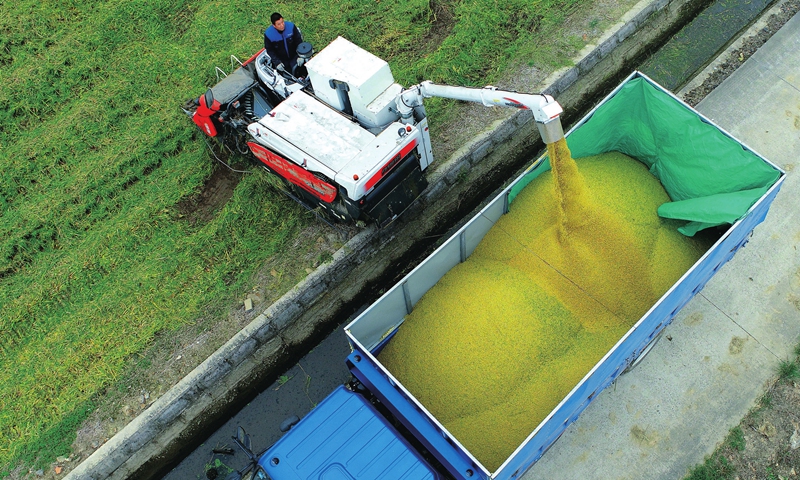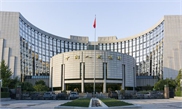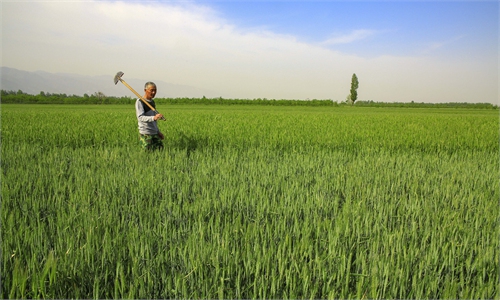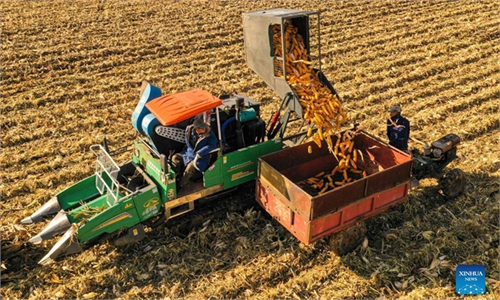
A man operates a vehicle to ship newly harvested paddy at a modern agricultural demonstration base in Lujiang county, East China's Anhui Province. The county has built over 30 industrial demonstration areas for the cultivation of green paddy, where modern farming technologies are applied to increase grain production. Photo: cnsphoto
China's central bank on Wednesday unveiled measures to bankroll the push for rural revitalization and underpin macroeconomic stabilization efforts, calling on financial institutions to strengthen credit guarantees for food security, and ramp up funding for major farm products including soybeans and oilseeds.
The fresh policy support addresses multiple imperative issues with agricultural financing, a seasoned expert said, urging efforts beyond bank loans to meet rural financial needs.
In a statement on its website that outlines the pro-rural financing measures, the People's Bank of China (PBC), the country's central bank, said that the banking sector should take the initiative to cater to financing needs and strengthen financial guarantees for food security.
The improved guarantees in financial terms would revolve around standard crop building, spring farming and food circulation, storage and processing.
As part of the measures, the PBC vowed greater credit support for supplies of soybeans and oilseeds, among other major agricultural products.
PBC branches across the country will need to work with local rural authorities to track monitoring of major seed firms, funneling greater credit over the medium and long term into eligible projects specializing in agricultural and biological breeding, according to the measures.
Financial institutions are encouraged to roll out lending services such as the use of seed intellectual property as loan collateral and the acceptance of seed stockpiles, orders and accounts receivable as a pledge, per the Wednesday announcement, which also aims for enhanced financial support for breakthroughs in key agricultural technologies.
The new measures also call on agricultural traders to use the yuan for cross-border settlements.
These measures signal more accessible financial services in rural China, where average farmers have long been unable to get sufficient financing, Li Guoxiang, a research fellow at the Rural Development Institute under the Chinese Academy of Social Sciences, told the Global Times on Wednesday.
Li cited "the difficulty in accessing loans from banks and high costs of bank loans for the rural population as their possessions to be given as security on loans would on many occasions fail to meet banks' needs."
Addressing these funding woes, the PBC emboldens financial institutions to broaden the scope of rural assets as collateral, read the Wednesday measures.
Farming machines and equipment, greenhouse facilities, livestock and poultry, and breeding amenities can in the future be pledged for loans. Qualified firms engaging in the research and development of farming machines and equipment will be encouraged to issue corporate bonds to commercialize their research.
The measures represent good intentions in expanding rural financing, but their implementation and efforts will be indispensable for the country's rural revitalization push to be genuinely empowered, Li emphasized.
That means an exchange is needed where rural assets used as collateral can be traded or monetized if the loans made on such assets aren't repaid, he suggested.



